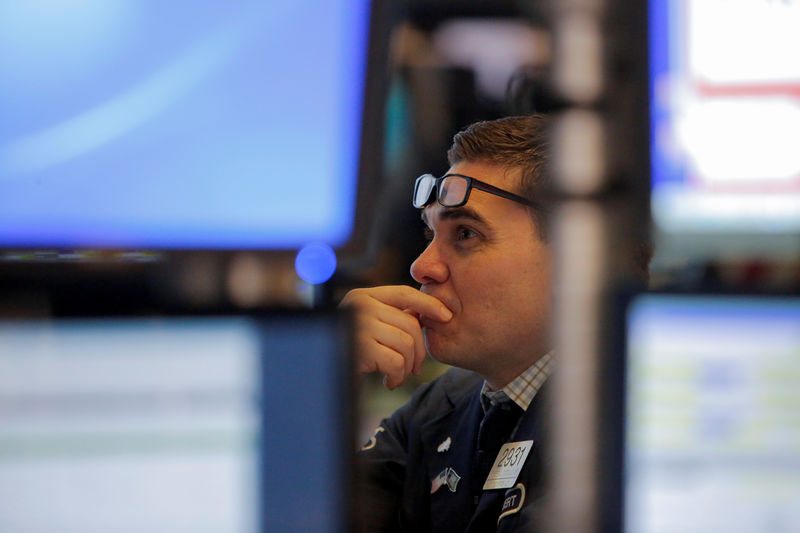By Geoffrey Smith
Investing.com -- Surging Covid-19 cases trigger a wave of risk-off sentiment across the world, throwing England's "Freedom Day" into chaos and pushing crude oil prices back below $70 President Joe Biden accuses Facebook (NASDAQ:FB) of killing people with vaccine misinformation and Zoom Video is buying Five9 (NASDAQ:FIVN) for $15 billion in stock. IBM (NYSE:IBM), Prologis (NYSE:PLD) and JB Hunt (NASDAQ:JBHT) report earnings. Here's what you need to know in financial markets on Monday, 19th July.
1. Dollar lifted by risk-off wave
The dollar hit its highest level against major peers in over three months as evidence of a rising wave of Covid-19 cases worldwide continued to mount, casting doubt over the sustainability of the global recovery.
The dollar index, which tracks the greenback against a basket of six advanced economy currencies, broke the 93 level for the first time since early April, hitting an intraday high of 93.047 before retreating a little to be at 92.980 at 6:15 AM ET (1015 GMT), up 0.3% on the day.
The dollar also rose across the board against emerging market currencies, with gains of over 0.5% against the South African rand and Mexican and Chilean pesos, extending a risk-off trend that had already begun in reaction to recent signs of the Chinese economy cooling off.
The risk-off move was also evident in bond markets, with the 10-year U.S. Treasury yield falling back to the five-month low of 1.25% that it hit last week.
2. England's 'Freedom Day' chaos
Nowhere is the Delta variant spreading more quickly than in the U.K., where it has thoroughly spoiled Prime Minister Boris Johnson’s plans for a feelgood “Freedom Day”.
Almost all remaining official restrictions on business and social life in England are being lifted today, but case numbers are spiralling and public confidence is rapidly deteriorating. The U.K. posted over 50,000 new case on Saturday, on a par with Indonesia, which has been the pandemic’s global hotspot in recent weeks (albeit U.K. testing rates are also far higher than in many countries).
Johnson himself is being forced to spend the week in self-isolation after being in contact with new Health Minister Sajid Javid, who tested positive last week. Meanwhile, the U.K.’s track and trace app is issuing so many instructions to self-isolate that public transport, supermarkets and truckers are all warning of crippling staff shortages. The pound sterling fell to its lowest in three months.
3. Stocks set to open lower; Zoom to buy Five9; IBM, Prologis earnings due
U.S. stock markets are set to open sharply lower later, the wave of risk-off sentiment pulling them further away from the record highs they hit last week.
By 6:15 AM, Dow Jones futures were down 351 points, or 1.0%, while S&P 500 futures were down 0.7% and NASDAQ Futures were outperforming, down only 0.3%, a familiar pattern on days when ‘reopening trades’ go into reverse.
Stocks likely to be in focus later include Zoom Video, which said over the weekend it’s buying cloud software provider Five9 in an all-stock deal worth $15 billion, its largest ever acquisition.
Also of note will be earnings from Prologis, PPG Industries (NYSE:PPG) and JB Hunt, while IBM will report after the closing bell.
4. Biden Slams Facebook
Facebook will also start the week on the back foot after President Joe Biden accused the social media giant of “killing people” by allowing anti-vaxxers to spread misinformation about Covid-19 vaccines on its platforms. A YouGov survey at the weekend showed that half of those refusing to take a vaccine believed that the government is using them to microchip people.
“The only pandemic we have is among the unvaccinated. And they’re killing people,” Biden said.
His comments were taken up by Surgeon General Vivek Murthy on Sunday, who repeatedly criticized “technology companies” for not doing enough to take down or flag inaccurate content.
Facebook pushed back against the accusations, which marked a new low in its relations with the Democratic Party. Senator Ted Cruz led a round of ripostes against the administration, accusing it of trying to stifle free speech.
5 OPEC peace deal can't save oil prices
U.S. Crude Oil prices fell back below $70 a barrel for the first time in over a month, a day after Saudi Arabia and the United Arab Emirates settled their differences over output policy and paved the way for a series of gradual output increases by OPEC and its allies.
Under the peace deal, the so-called OPEC+ group will raise output by 400,000 barrels a day every month between August and the end of 2022. By that time, it will have restored all the output that it cut in response to a collapse in global demand at the start of the pandemic.
The UAE, for its part, secured a greater weighting in the calculation of market share between OPEC members.
The deal was seen by many analysts as broadly supportive for prices and for OPEC’s credibility, but such factors were outweighed on Monday by the wave of risk-off sentiment that hit most asset classes. Brent crude futures fell 2.7% to $71.63 a barrel.
